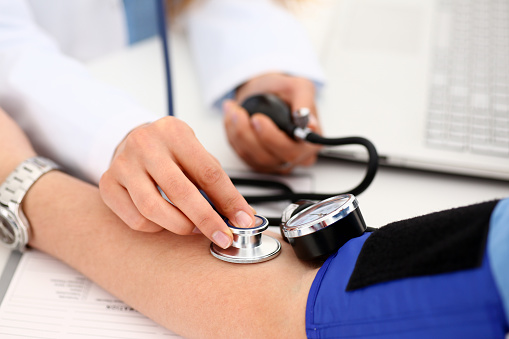
- Reducing death rates in Nigeria as a result of hypertension through reduction of the prices of hypertension drugs
High blood pressure, also known as hypertension, is one of the most common health conditions, affecting about 30% of adults in Nigeria. Uncontrolled high blood pressure leads to heart attacks, strokes, and kidney disease, and kills 10 million people each year worldwide, making it one of the deadliest global health issues.
Treatment for HBP is extremely effective for most people; taking proven, high-quality medications can add years to your life and make those years more enjoyable. But in Nigeria, less than 3% of people with HBP have it under control. Hypertension is called the silent killer because there are no symptoms; many people do not know that they have hypertension. Many of those who are aware that they have high blood pressure are not taking medications regularly. Medication for hypertension needs to be taken every day.
Ms. Olabisi Obelawo, a patient advocate from the Nigeria Non-communicable Disease Alliance, recently shared how high drug prices have negatively impacted her and her community. “Both of my parents had high blood pressure when they were young. They passed away and the same thing is happening to people in my community. Paying for my high blood pressure medicine is difficult on top of my household expenses. If we can get high-quality drugs more affordably, our lives can be extended.”
Excellent, safe, and inexpensive medicines to control blood pressure have been around for decades and are proven to prevent heart attacks and strokes. But prices for anti-hypertension medicine vary substantially across countries, in some places costing up to 40 times more than in others. For example, amlodipine (a great, safe, effective hypertension drug generally used as a first treatment) has an estimated generic price of N4.22 per tablet but the actual per tablet cost in the Nigerian private sector is almost N11—more than twice the price! The prices for other recommended standard hypertension medicines (hydrochlorothiazide and losartan) are almost five times higher than the estimated generic price.
Why are drug prices so high in Nigeria and elsewhere? Although the global market for hypertension medications is very large, because of a lack of a standard treatment approach, there are a variety of drugs provided in the Nigerian market and sales volumes even for recommended essential hypertension medicines are low. This local market fragmentation leads to higher medication prices for Nigerians. For conditions such as HIV and tuberculosis—which affect fewer people than hypertension does—standardised treatment protocols, which often recommend medications that combine two or more medications in a single pill, streamline the available options. This standardisation around a few essential medicines allows countries to negotiate more affordable prices for HIV and TB medications.
How can this happen for anti-hypertension medications in Nigeria? Experience in other countries shows that drug prices can be sustainably lowered by using a standardised treatment protocol nationwide. When used for the treatment of HBP, protocols can streamline care and improve patient outcomes, whilst condensing the market for hypertension drugs to the only three recommended protocol medicines. Nigeria now has a standardised hypertension treatment protocol that recommends specific medications, dosages, and action steps for health care providers and HBP patients. This protocol, which is currently used in the Federal Capital Territory, Ogun and Kano (as well as the Healthy Heart Africa program), should be rolled out nationally for the greatest positive impact on health.
Secondly, promoting national or regional pooled procurement, which reduces costs through bulk purchasing, pooled negotiations and assurance of quality and stable supplies. For this to happen, coordinating mechanisms such as the Nigeria Governors Forum, the Federal Ministry of Health and the Manufacturers Association of Nigeria must work together to ensure the supply of medicines hypertension patients need and at affordable and transparent prices.
Thirdly, strengthen the government Drug Revolving Funds. These funds—through which drugs are sold at cost-price plus a small, transparent markup, with revenue used to replenish drug stocks—enable cost efficiencies and uninterrupted drug supplies.
Fourthly, strengthen the health insurance system to include robust and reliable primary health care. Enabling patients with hypertension to benefit from the national and community-based health insurance coverage will increase the pool of insured Nigerians, thereby reducing heart attacks, strokes as well as health insurance premiums and health care costs
Affordable medicines will help patients with hypertension prevent heart attack, stroke, and early death. All people in Nigeria—regardless of where they live, or how much they can afford to pay—should have access to affordable life-saving anti-hypertension medications. Governments and non-governmental organisations, as well as the pharmaceutical industry and health advocates, must work together to address this urgent public health priority. Treating hypertension cannot wait; delay will mean significant loss of life. By acting now, we can save lives by making drugs more accessible and affordable.



